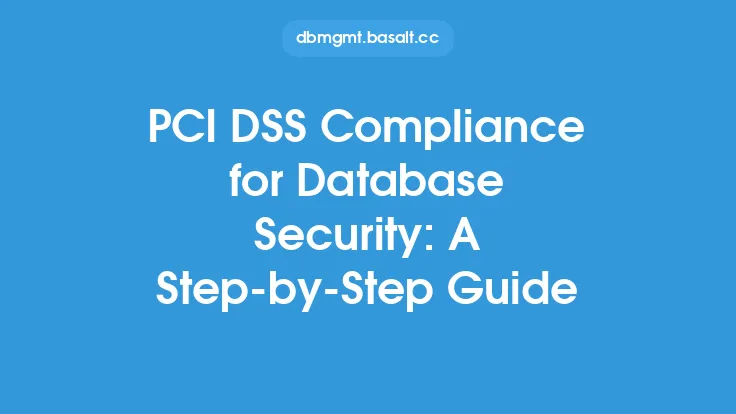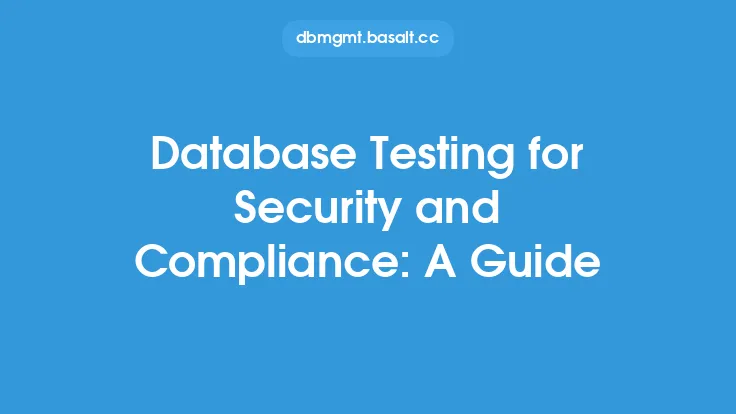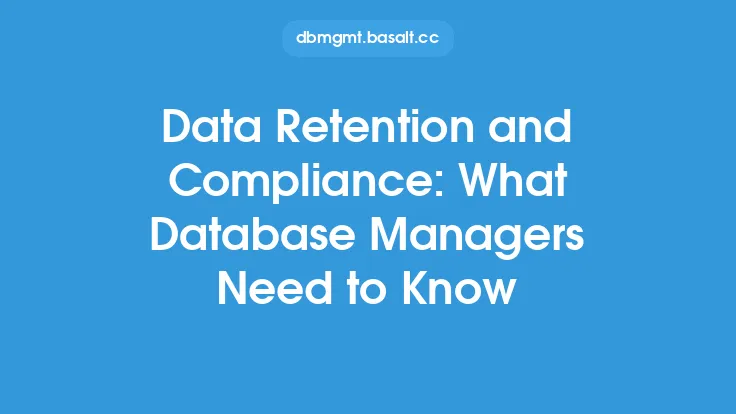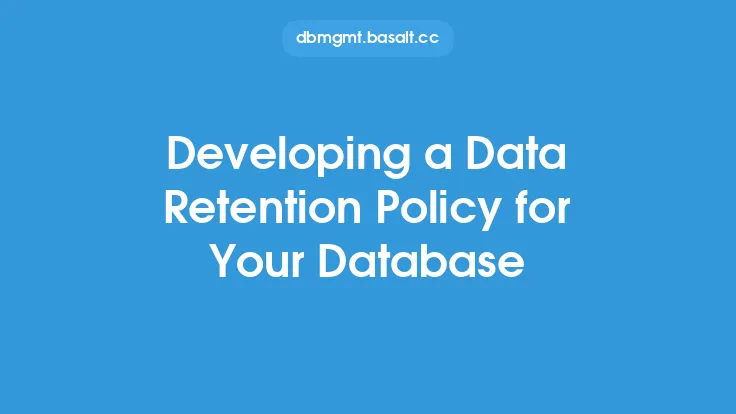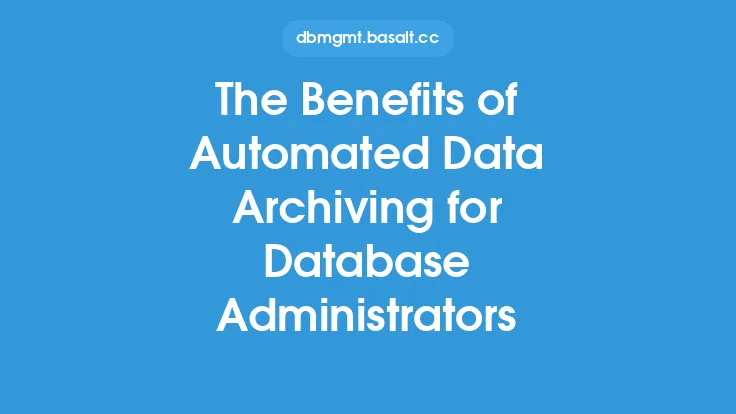As a database manager, ensuring regulatory compliance is a critical aspect of your role. One key component of achieving compliance is data archiving, which involves storing and managing data in a way that meets regulatory requirements. In this article, we will explore the importance of data archiving for regulatory compliance and provide guidance on how to implement effective data archiving strategies.
Introduction to Regulatory Compliance
Regulatory compliance refers to the process of ensuring that an organization's data management practices meet the requirements of relevant laws, regulations, and industry standards. These requirements can vary depending on the industry, location, and type of data being managed. For example, organizations that handle financial data may need to comply with regulations such as the Sarbanes-Oxley Act, while those that handle healthcare data may need to comply with the Health Insurance Portability and Accountability Act (HIPAA).
Key Regulatory Requirements for Data Archiving
There are several key regulatory requirements that database managers need to be aware of when it comes to data archiving. These include:
- Data retention: Regulations often require organizations to retain data for a certain period, which can range from a few years to indefinitely.
- Data accessibility: Regulations may require organizations to ensure that archived data is accessible and can be retrieved in a timely manner.
- Data security: Regulations often require organizations to implement robust security measures to protect archived data from unauthorized access, theft, or damage.
- Data integrity: Regulations may require organizations to ensure that archived data is accurate, complete, and not modified or deleted without authorization.
Data Archiving Strategies for Regulatory Compliance
To achieve regulatory compliance, database managers can implement several data archiving strategies. These include:
- Hierarchical storage management (HSM): This involves storing data on a hierarchical system of storage devices, with the most frequently accessed data stored on the fastest devices.
- Data compression: This involves reducing the size of data files to reduce storage costs and improve data transfer times.
- Data encryption: This involves encrypting data to protect it from unauthorized access.
- Data replication: This involves creating multiple copies of data to ensure that it is available in the event of a disaster or data loss.
Best Practices for Data Archiving and Regulatory Compliance
To ensure regulatory compliance, database managers should follow several best practices for data archiving. These include:
- Developing a data archiving policy: This should outline the organization's data archiving procedures, including data retention, accessibility, security, and integrity.
- Implementing a data archiving system: This should include a robust storage system, data management software, and security measures.
- Monitoring and auditing data archiving: This should include regular checks to ensure that data is being archived correctly and that regulatory requirements are being met.
- Providing training and support: This should include training for staff on data archiving procedures and providing support for any issues that may arise.
Tools and Technologies for Data Archiving and Regulatory Compliance
There are several tools and technologies that can help database managers achieve regulatory compliance through data archiving. These include:
- Data archiving software: This can help automate data archiving processes, including data retention, accessibility, security, and integrity.
- Storage systems: This can include disk-based storage, tape-based storage, and cloud-based storage.
- Security software: This can help protect archived data from unauthorized access, theft, or damage.
- Compliance software: This can help database managers track and manage regulatory requirements, including data retention, accessibility, security, and integrity.
Challenges and Considerations for Data Archiving and Regulatory Compliance
There are several challenges and considerations that database managers should be aware of when it comes to data archiving and regulatory compliance. These include:
- Data volume and complexity: As data volumes grow, it can become increasingly difficult to manage and archive data effectively.
- Regulatory complexity: Regulatory requirements can be complex and nuanced, making it difficult to ensure compliance.
- Technology changes: Changes in technology can make it difficult to ensure that data archiving systems remain compatible and effective.
- Budget and resource constraints: Data archiving can require significant budget and resources, which can be a challenge for organizations with limited resources.
Conclusion
In conclusion, data archiving is a critical component of regulatory compliance for database managers. By understanding the key regulatory requirements, implementing effective data archiving strategies, and following best practices, database managers can help ensure that their organizations meet regulatory requirements and avoid costly fines and penalties. Additionally, by leveraging tools and technologies and being aware of challenges and considerations, database managers can ensure that their data archiving systems are effective, efficient, and compliant with regulatory requirements.
